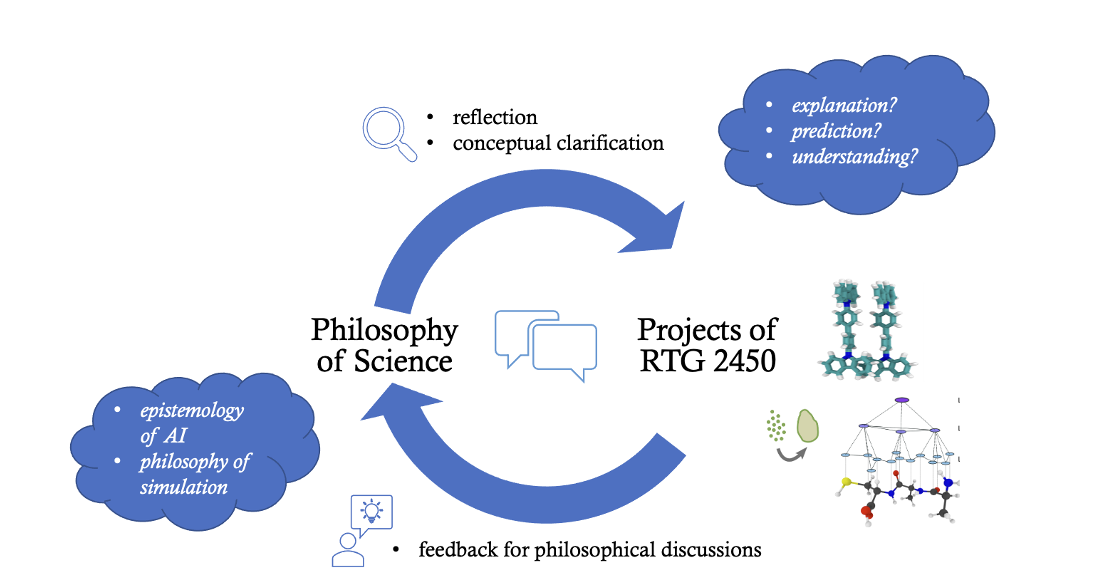P9: Philosophical Issues of Multiscale Modeling and AI
Research issues addressed in computational nanoscience are typically considered to require specific sets of skills and knowledge, a high division of cognitive labor and a crossing of traditional disciplinary boundaries. All these aspects indicate that when it comes to academic training in a multidisciplinary scientific field and in a highly collaborative setting, it is valuable to reflect not only on the specific methods and tools used in concrete research projects, but also more broadly on the formulation of scientific aims, the formation of concepts and the assumptions and ideas that shape scientific reasoning in the nanosciences.
Zooming in on the principles of scientific reasoning and knowledge acquisition means entering the terrain of philosophical reflection. Scientists and philosophers alike have suggested that the integration of philosophical expertise in concrete scientific research programs offers an opportunity e.g. for conceptual and argumentative clarification, and an assessment of the assumptions that guide method or algorithm choice, among other things. Vice versa, it has been proposed that philosophical reasoning about science profits from close interaction with actual scientific practices.
In the philosophical community, the prevalence of computer simulations and machine learning methods in scientific research practices has lately given novel twists to discussions on topics ranging from scientific explanation and understanding to scientific reduction. Addressing such topics and aiming at enabling an opportunity for collaboration between science and philosophy, P9 integrates philosophical research in the program of the RTG.
| Name | Title | Group | Contact |
|---|---|---|---|
| Bott, Oliver |
Prof. Rafaela Hillerbrand, KIT ITAS |


